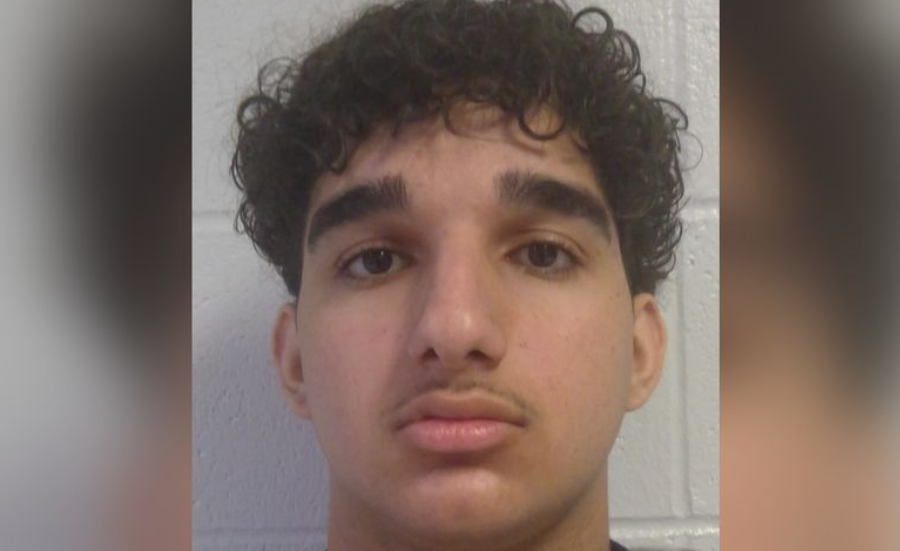This is part of a Reveille series on the candidates running for Louisiana State Senate District 14. For Carolyn Hill, click here. For Larry Selders, click here.
Democrat Quentin Anderson wants to rewrite the playbook for Louisiana politics, trading big-money influence for accessibility and meaningful progress.
The District 14 State Senate candidate, a policy advocate and an LSU and Louisiana Tech alumnus, aims to address issues like education, public transit and economic inequity. Shaped by his experience and legal background, Anderson has centered his campaign around representation.
“You put yourself aside and you figure out, how do I represent the collective interest of my community?” Anderson said. “Sometimes that means pursuing agenda items that might not be what excites you personally, but they’re what’s most important to folks collectively.”
To explain this, Anderson provided the example of owning a home. He says the price of home insurance is one of the biggest issues his district faces, and though he is not a homeowner, he views steep insurance prices as one of his top priorities.
Anderson has taken this approach throughout his career in policy advocacy and hopes to bring it to the Louisiana legislature – an approach he believes is critical to restoring trust in government.
“Learning how to do the job of representation, how you govern with the people in mind and not your own personal ambition, is a critical aspect of our democracy,” Anderson said.
One of Anderson’s primary campaign issues is increasing funding for public schools and colleges. He advocates for including higher education in Louisiana’s public education guarantee, ensuring that students have access to affordable education.
“My North Star is that I believe that public colleges and universities should be part of the public education deal compact that we’ve always had. This isn’t about doing it just because we want to or it’s charity. It’s about investing in our future, our economy,” Anderson said.
This investment would primarily target the state’s public schools, which have historically fared poorly when compared to their national counterparts.
“We’ve always underfunded our public schools, particularly our public colleges and universities. I’m going to fight for as much increased funding for colleges as possible to lower tuition,” he said. “If we’re not investing in our public schools, we really are damning ourselves down the road.”
Earning the Young Democrats of Louisiana’s first statewide endorsement, Anderson urges LSU students to become informed on local politics because of its impact on their lives.
“The things that impact tuition, the things that impact public safety, or the quality of life, that’s often local politics … and so it’s really important in particular that young people, that students are voting for the world that they want to see,” Anderson said.
Another one of Anderson’s key focuses is improving public transit in Baton Rouge, explaining that he wants to finish the New Orleans-Baton Rouge commuter trail and improve infrastructure so all Baton Rouge residents can use public transportation.
“Just in terms of transportation, I think that we’ve just been woefully behind. Everything from local public transit systems being underfunded to projects that are necessary but have been perpetually just on hold, like the EBR to New Orleans commuter rail that has been happening tomorrow since I was a kid,” Anderson said.
Beyond infrastructure, Anderson is pushing for economic policies that prioritize working-class people over corporate interests. One of his primary goals is raising the minimum wage, a fight he sees as long overdue in Louisiana.
“The cost of living has skyrocketed, and the minimum wage has stayed the same,” he said. “And as long as it stays the same, particularly at the federal level, Louisiana is hardly going to have the incentive to raise it. What you’re going to end up having is greater and greater economic disparities. And it’s not going to just be racial, these wages aren’t increasing across a host of industries.”
Anderson believes the political system is stacked against everyday people, and he’s focused on breaking those barriers. He shared that increasing accessibility to public office to improve representation is important to him.
“I want to make the barrier to entry into office lower so that hopefully representation is more reflective of the people that they actually represent,” Anderson said.
Anderson also believes the state’s political system is lopsided and isn’t serving the people, arguing that regardless of party, politicians operate under the influence of donors rather than voters.
“There’s not a real conservative party in the state. The Republican Party is more of a caricature of conservatism. So what you get are Republicans using conservative language, but their policies are blatantly elitist,” Anderson said. “That’s an area where, when people turn on the news, or they read the newspaper and they see what their government’s doing, it just gives them another reason to check out.”
Anderson hopes to bridge the disconnect between the priorities of the people and the actions of their representatives.
“If you want to see the world as it should be, you got to vote for it,” Anderson said.
Early voting began Feb. 1 and ends Feb. 8. Election day is Feb. 15.







